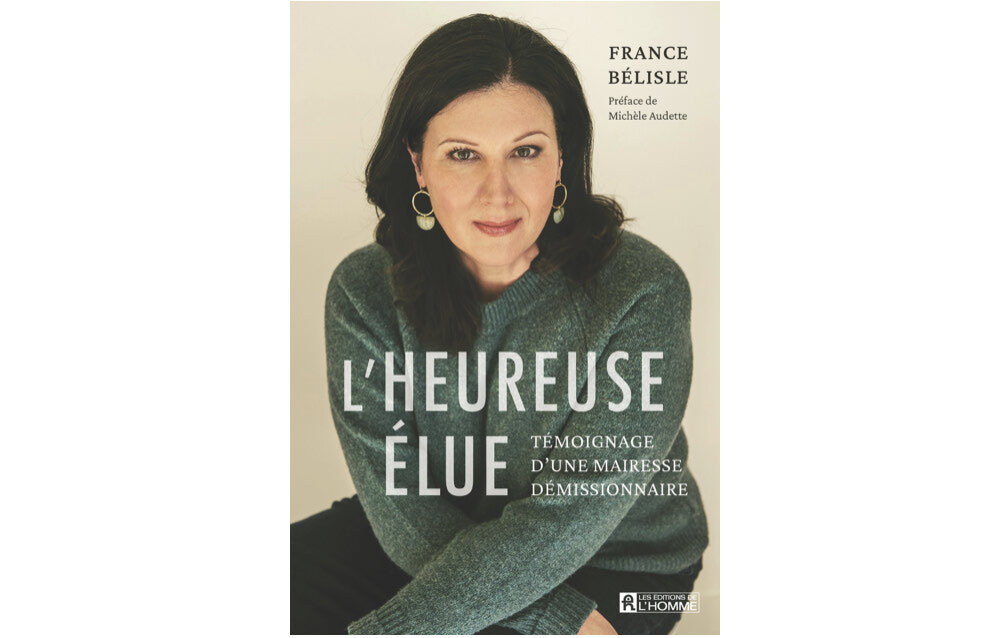Former Gatineau mayor pens book
L'heureuse élue: France Bélisle's bold take on politics, power and personal struggle
Tashi Farmilo
France Bélisle, the former mayor of Gatineau, has unveiled a new chapter in her life—a literary one. Her upcoming book, L'heureuse élue, set for release on February 12, offers an intimate reflection on her experiences in municipal politics, framed through the lens of personal struggle and the ethical battles that led to her resignation from office in February 2024. In her own words, the book is neither a dense political analysis nor a traditional memoir, but rather a candid narrative that blends testimony with a critical examination of the political landscape that shaped her tenure.
Bélisle's decision to write about her time in public office comes after a period of profound reflection. Having resigned as mayor amidst growing frustration with the political environment, including personal attacks and partisan-driven decision-making, Bélisle now seeks to share her story with the public. In a Facebook post, she spoke with passion about the process of crafting the book, noting the countless hours spent writing, researching, and reflecting on her own journey. "The book is a mix of my perspective on what I lived in politics, told through a deeply human lens," she explained.
Her account is not one of high-minded theory, but of lived experience, accessible to anyone interested in understanding the human cost of public service. Bélisle details her emotional and physical struggles, including the toll that constant stress and criticism took on her well-being. For Bélisle, the decision to leave office was not just political; it was personal. The long days and sleepless nights were punctuated by incidents that left deep scars, from the barrage of insults and even death threats to the overwhelming pressure of managing a city amid a divided political climate. "Political life takes its toll," she confessed in her resignation speech, and L'heureuse élue reveals just how much of a toll it took.
The book also serves as a critique of the broader political environment. Bélisle addresses, without restraint, the challenges of being a woman in a high-powered political position and the emotional labour that often goes unacknowledged in political spheres. Her reflections will resonate with many who have grown disillusioned with the cynical side of politics. She presents the personal and professional difficulties of governance, pulling back the curtain on what often remains hidden from the public eye. In many ways, L'heureuse élue is a response to the disillusionment that so many residents feel, offering an insider’s look at the machinery of local government, along with a call for more respect and professionalism in the way political leaders are treated.
The preface of the book is written by Michèle Audette, the Innu senator and human rights advocate, whose work Bélisle has long admired. Audette’s contribution lends an additional layer of depth to the narrative, offering a perspective from someone who has navigated the political terrain with a clear commitment to Indigenous rights and social justice. For Bélisle, Audette represents the kind of leadership that she herself aspires to, grounded in values and integrity. In fact, Bélisle credits her time in office with shaping her feminist views, a sentiment she explores in the chapter titled “La mairie m’a rendue féministe” (“The Mayor’s Office Made Me a Feminist”).
The book is a labour of love that emerges not just from a desire to share her story, but from a need to heal and make sense of her experiences. Bélisle's path to publication was grueling—countless hours of writing and re-writing, research, and reflection on her time in office. Yet through all of this, she remains deeply proud of the work, viewing it as a way to engage with her city in a new form, one that transcends her previous role as mayor. As she reflects on her time in politics and her decision to step away, L'heureuse élue becomes more than just a book. It is a personal manifesto, a call for transparency, and a gift to the people of Gatineau who may have once supported her—and to those who, after reading her story, may come to understand the often painful and complex decisions that come with political leadership.






